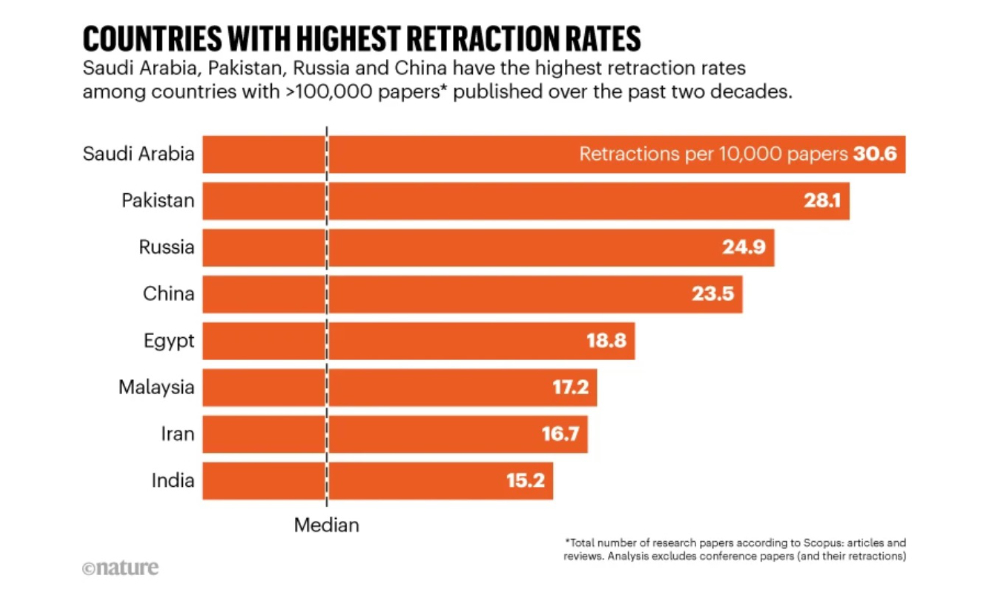Malaysia is among the countries which produced the greatest number of academic research papers, which were later retracted from publication due to integrity concerns.
According to an analysis of research articles over the past two decades by the academic journal Nature, Malaysia ranked sixth in the list of countries with the highest retraction rates.
The analysis published this week comes amid continued debate over the quality of higher education in Malaysia and the growing number of young Malaysians opting out of tertiary education for gig work.
The Nature analysis looked at countries which have published more than 100,000 articles in the past two decades.
The analysis counts an article for a country if at least one co-author has affiliation in that country.
In the analysis, Nature found that for every 10,000 Malaysian research papers published, 17.2 were retracted - about three times the average rate for all countries analysed.
The country with the highest retraction rate was Saudi Arabia with 30.6 retractions for every 10,000 papers published.
However, the analysis found that if conference papers were included, China would have trumped Saudi Arabia for the dubious honour, with more than 30 retractions per 10,000 articles.
The analysis was prompted by the large number of retractions that happened this year, mostly by journals owned by Hindawi, a London subsidiary of the publisher Wiley.
More than 10,000 articles were retracted this year, of which more than 8,000 were from Hindawi.

The articles were retracted over “concerns that the peer review process has been compromised” and “systematic manipulation of the publication and peer-review process”, Nature reported.
“Most of the Hindawi retractions are from special issues: a collection of articles that are often overseen by guest editors and that have become notorious for being exploited by scammers to rapidly publish low-quality or sham papers,” Nature wrote.
Tortured phrases to evade plagiarism checkers
A similar trend occurred at New York’s Institute of Electrical and Electronics Engineers (IEEE), which retracted more than 8,000 conference papers from 2009 to 2011.
Although the IEEE said it put in place preventive measures, watchdog group Retraction Watch reported IEEE still published hundreds of papers which had issues like “tortured phrases, citation fraud and plagiarism”.
Tortured phrases refer to strange and incoherent phrasing, often used in an attempt to evade non-human plagiarism checkers.
This is not the first time Malaysian academics were found to be among those whose work was published in dubious circumstances.
In 2021, it was found that they make up a large portion of those whose work was published in more than 300 “fraudulent journals”.
These journals, also known as predatory journals, reportedly accept articles without much scrutiny, and at times, for a fee.
In that study of articles in 334 journals from 2015 to 2017, Malaysia ranked fifth, making up 11.6 percent of the works published. Kazakhstan topped the list at 17 percent, while Indonesia was second with 12.94 percent.
The publishing scam is likely driven by pressure on academics to publish research papers to meet targets set by their employers.
The number of research papers published by members of the faculty is also an indicator measured for global university rankings. - Mkini



No comments:
Post a Comment
Note: Only a member of this blog may post a comment.